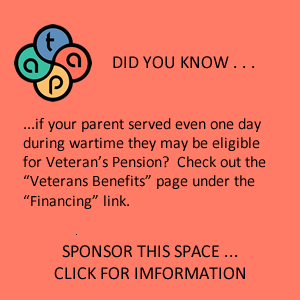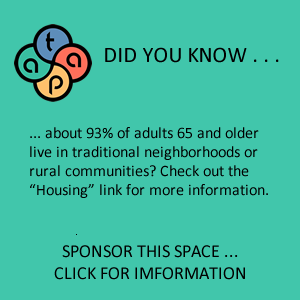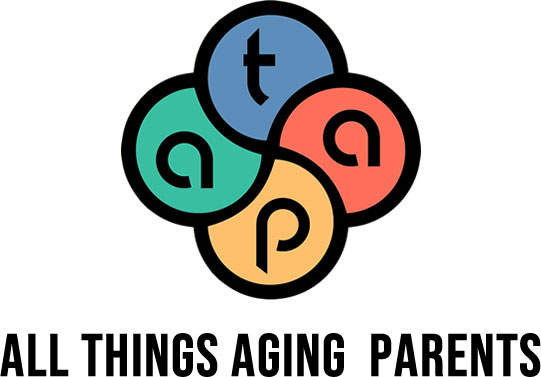Informal, unpaid care is the most common form of long-term care provided for older adults in the US. Unspoken cultural and family dynamics often prompt family members to care for one another in times of need. This helps to explain why it's easy to gradually start taking on more and more responsibility as you see areas of need for your parents, especially if you live nearby. Most family members can "put their lives on hold" for an acute crisis, but long-term caregiving is a marathon and requires pacing yourself and developing coping mechanisms. This means that eventually, it is important that you identify yourself as a caregiver and begin to develop strategies and get help.
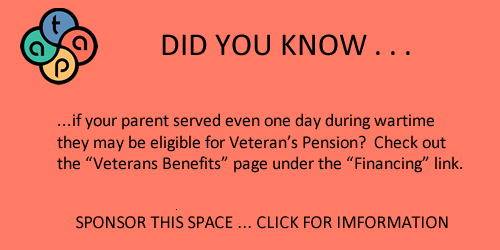
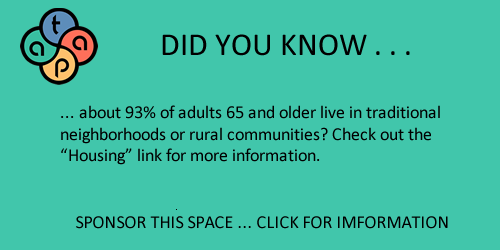
Most caregiving is defined in terms of assisting with Activities of Daily Living, or ADLs. ADLs include bathing, dressing, eating, toileting, caring for incontinence, and transferring in or out of a bed or chair. Another category is assistance with Instrumental Activities of Daily Living, or IADLs. IADLs include shopping, cooking meals, household chores (like laundry or cleaning), managing money, using the telephone, and managing medications. Again, the things we do for ourselves without thinking about it.
Are you a caregiver? Here are some things caregivers do, see if you find yourself on the list:
- Buy groceries, cook, help Dad eat, clean house, do laundry, provide transportation
- Help your loved one shower, use the toilet, get dressed, take medication
- Transfer Mom from bed to chair
- Sometimes help with physical therapy, give injections, feeding tubes, wound treatment, breathing treatments
- Arrange medical appointments, drive Dad there, then sit in on the appointment to track what’s being said
- Talk with doctors, nurses, care managers, and others to understand what needs to be done
- Arrange for assistance when you’re not available
- Manage crises
- Help with finances and other legal matters
- Be a companion and aide
It’s about the time you read that list that the panic starts to set in. So pause now, take a deep breath, and remember that THIS is why you are reading this website. Fortunately for you, there are others who have gone before you on this journey who are willing to say, “It can be done.” Lots of help and encouragement are available, and you’d better believe you will need them.
So now you can say, having looked at the list, “Yes, I am a caregiver for [fill in the blank]." Admitting this keeps you rooted in reality. There are some positive aspects of caregiving – growing closer to your aging parents, listening to their stories, giving back to those who have given so much to you – all of these can help keep your focus uplifted when times get rough.
Let me say right up front that the best thing you can do as a caregiver is to take care of yourself. When the well is dry, there is nothing left to pour out to someone else. If you need to give yourself to your loved ones, you need to “fill yourself up.” Make time to do something that is life-giving for you: listen to music, read a book, take a walk, have coffee with a friend, watch a ball game, whatever is your thing. We’ll talk a lot more about this after we look at the challenges.
It is good to start this journey with a family meeting. If possible, include all relatives, neighbors, and friends who might potentially be able to provide help. This will become the caregiving team. Whether or not to include the person receiving the care is a call you’ll have to make, but it is wise to know what your parent’s wishes are concerning where to live, what plans they may have made for the future, etc. In this meeting, you can discuss personal care, assistance with housekeeping and shopping, transportation, finances, etc, and ask each person how they would like to contribute. Ideally, each person will be willing and able to take responsibility for some tasks, and you can focus on coordinating the care and picking up whatever is not covered. Long distance caregivers can fill an essential role by providing respite care (taking your place for a few hours or days), or being a liaison with health care providers. Remember, you cannot anticipate every possibility, so make your plan with the knowledge that you will need to revisit it regularly to see if it is still working.
If you are the sole family caregiver you will want to develop a network of help from friends, neighbors, and faith community members, as well as professionals who will be able to help in a variety of ways. Even if you have a good team of family and friends, there may be times when professional help is needed - and not only medical help. For example, home care agencies can fill important roles in your parent’s need for housekeeping, companionship, transportation, etc. Look through Home and Community-Based Services and Supports for Caregivers for other ideas.
AARP has an excellent resource to help you through the planning process, Prepare to Care: A Caregiving Planning Guide for Families.
Great news - you have already started on this task! Three primary areas you need to become familiar with are your parents’ health, finances, and choices for medical care (which are discussed in Advance Care Planning). Obviously, these can be sensitive subjects so you may not be able to just ask your parents outright, although some parents are just watching for the opportunity to have this conversation. You may get a better response if you phrase your discussion in terms of making it easier on the family if there is ever an emergency and they cannot speak for themselves. Use whatever opportunity you can find to start the conversation like an article you just read, or your own intentions to start making decisions for your future. This may not happen all at once, so listen carefully and come back to the subject over time.
Health: It is crucial to know what health issues your parent(s) is dealing with, so you should have a list of his/her medications and supplements (with dosages), the names and phone numbers of his/her doctors, a medical history, and dietary restrictions. We recommend keeping a log of their medical visits as you accompany them, noting the doctor’s findings, vital signs, diagnoses, recommendations, next visits, etc. If you have a “Notes” app on your smartphone this works well to take notes during the visit. If you prefer a more detailed record, consider downloading The Caregiver Notebook. As you build a relationship with your parent’s healthcare workers they can become a wealth of information for you about your parent’s needs, and often your best source of information about what is best for them. It is possible to write your concerns about your parent in a note or email sent in advance so the doctor can address these issues in the next appointment. On a larger scale, it is helpful for you to learn more about your parent’s diagnosis so that you can understand the progression of the disease, possible treatments, side effects or signs of problems, etc.
Finances: It is helpful for you to understand your parent’s financial situation so you will know if (s)he has any resources available to help with their care. Pertinent information includes their current income, assets (savings, retirement plans, stocks, etc), insurance, monthly expenses, and debts. All of this has to do with the plan they (hopefully) made for their later years. Your job is to help facilitate their best life, as much in accordance with their wishes and plans as is possible. Framing questions as “what if…?” may help to elicit the information you need.
Understanding your parents’ financial situation is especially important if they have a cognitive disorder, such as Alzheimer’s Disease or another form of dementia. If that is the case, it is imperative that you or someone else they trust have a legally executed Durable Power of Attorney that will give you or them the right to manage financial matters on their behalf. This must be done while your parent is still legally competent.
Remember, knowledge is power, and you need as much knowledge going into this relationship as possible. Not power to wield over your parent, but to use on their behalf, to make their remaining years as comfortable, safe, and life-giving as possible. And power to enable you to live your best life as you add the title of “caregiver” to your identity.
Resources:
The Family Caregiver Alliance has a great resource for new caregivers to help you gather the information you’ll need to make a plan for caring for your loved one, called “The ‘IRS of Caregiving’: Information, Respite, and Support”. Their entire section on “Caregiver Education” is worth reading through.
- https://www.nextstepincare.org/uploads/File/Guides/Becoming_a_Caregiver/Becoming_a_Caregiver.pdf
- https://medlineplus.gov/caregivers.html
- https://www.aarp.org/caregiving/
- https://www.aarp.org/caregiving/prepare-to-care-planning-guide/?intcmp=AE-CAR-BAS-BB
- https://www.caregiver.org/what-every-caregiver-needs-know-about-money
